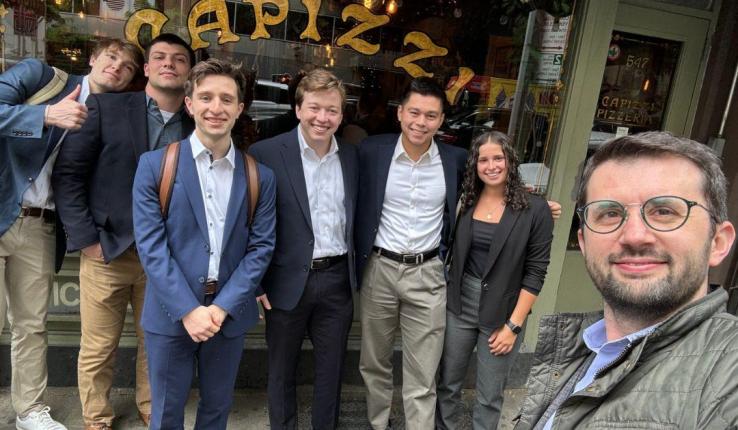Kathleen Hanley, professor of finance and director of Lehigh's Center of Financial Services, advises caution with respect to Congress and financial agencies in adopting new regulations until a "new normal" has been established following the coronavirus pandemic.
COVID-19: The Impact on Financial Regulations
A Q&A with Kathleen Hanley, professor of finance and director of the Center of Financial Services at the College of Business.

Kathleen Hanley
Previously, Hanley was the Deputy Chief Economist of the Securities and Exchange Commission and the Deputy Director in the Division of Economic and Risk Analysis where she oversaw the integration of economic analysis into policy and rulemaking across a broad range of topics in financial economics including the implementation of the Dodd-Frank Wall Street Reform and Consumer Protection Act.
She addressed the potential impact of the coronavirus pandemic on financial regulations and spoke specifically about whether additional regulations could make the United States' financial system less vulnerable.
Q: The Federal Reserve and other regulators have eased rules that were in place to ensure banks have enough loss-absorbing capital on hand. Do you expect the lighter regulations to continue when the pandemic is over? Or, with experts suggesting that we’re facing the worst recession since the Great Depression, do you think additional regulations will be required post-pandemic?
A: It depends on how banks respond. Unlike most financial crises, this was not a banking crisis but of course it can spillover into many industries including banks. This may happen if there are significant foreclosures in the real estate market or many companies no longer can make payments on loans. As I note in my video there is too much ambiguity surrounding eventual outcomes to know whether more regulations will actually be needed. But an educated guess suggests that whether needed or not, new regulations will be adopted since lawmakers tend to prefer action over inaction because the rewards are higher (reelection, reappointment).
Q: As part of the Dodd-Frank Act in 2010, on the heels of the 2008 financial crisis, the Federal Reserve can no longer bail out individual companies. Could that hinder the central bank’s response this time around?
A: Perhaps, but related to my point above, if the situation becomes dire and other alternatives are not working (such as bail-ins), Congress will likely rescind that provision of Dodd-Frank. Rather than bailing out banks by injecting capital, Dodd-Frank gives the Federal Reserve, the SEC and the FDIC the authority to place bank holding companies under federal receivership. This allows these agencies to restructure the liabilities of the banks and require unsecured depositors and creditors to take losses (bail-ins). Note that the FDIC insures deposits up to $250,000 so deposits up to this amount are exempt from a bail-in.
Q: Can any regulations be put in place right now to make the United States’ financial system less vulnerable with the impacts of the coronavirus in mind?
A: As a former regulator, I would advise caution with respect to Congress and financial agencies adopting new regulations until we are in a “new normal.” The impact of regulations passed during a crisis is often felt long after the crisis has ended and may not be effective during the next crisis. (Note that agencies can implement temporary regulations that may be effective if targeted correctly.) The Dodd-Frank Act is a case in point where lawmakers were able to insert provisions unrelated to the crisis such as “conflict minerals”. Hastily drafted regulations without strong economic underpinning undermines the economy rather than bolstering it. Moreover, satisfying political agendas in order to pass an Act may allow non-essential, personally motivated and sometimes frivolous regulations to be embedded in crisis-driven law making. In my experience, regulators and politicians rarely let a good crisis go to waste.




